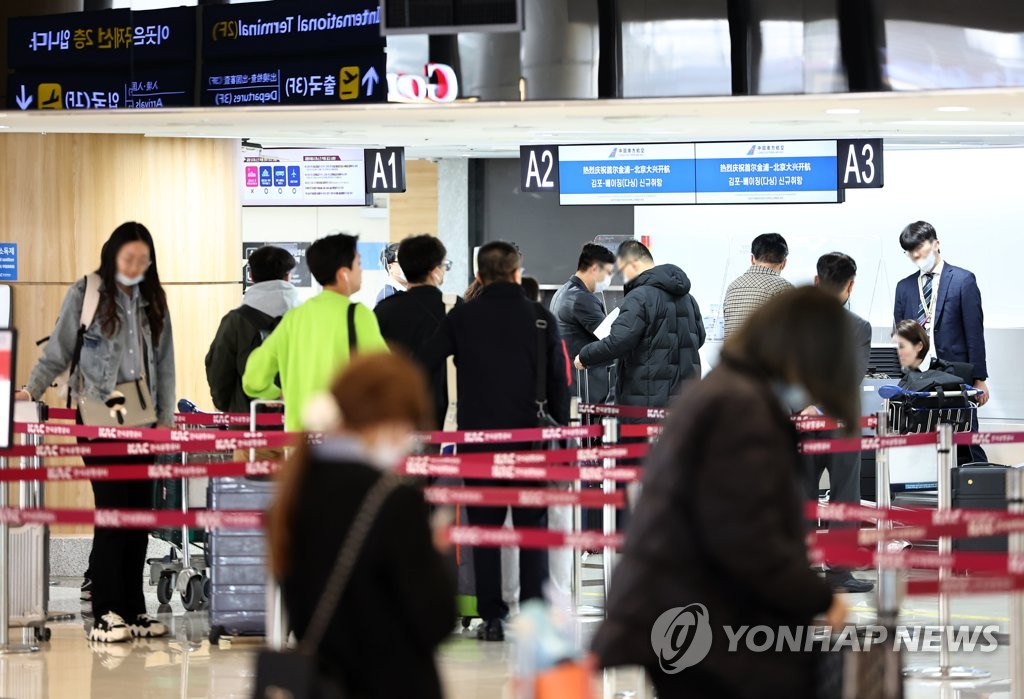- California Assembly OKs highest minimum wage in nation
- S. Korea unveils first graphic cigarette warnings
- US joins with South Korea, Japan in bid to deter North Korea
- LPGA golfer Chun In-gee finally back in action
- S. Korea won’t be top seed in final World Cup qualification round
- US men’s soccer misses 2nd straight Olympics
- US back on track in qualifying with 4-0 win over Guatemala
- High-intensity workout injuries spawn cottage industry
- CDC expands range of Zika mosquitoes into parts of Northeast
- Who knew? ‘The Walking Dead’ is helping families connect
S. Korea’s new COVID-19 cases post on-week rebound amid post-pandemic recovery
South Korea’s new COVID-19 cases bounced back to over 4,000 from a week earlier Monday, as people increasingly adapt to post-pandemic everyday life with the relaxation of most of the COVID-19 rules coming into effect.
The country reported 4,204 new COVID-19 infections, including nine cases from overseas, bringing the total caseload to 30,773,460, the Korea Disease Control and Prevention Agency (KDCA) said.
Monday’s figure is up from 3,930 logged a week ago and marks a rebound after reporting a steady downtrend in the Monday counts for three consecutive weeks.
The KDCA reported three COVID-19 deaths Monday, raising the death toll to 34,223.
The number of critically ill patients came to 153, up four from Sunday.
South Korea removed the mask mandate on public transportation last week, about two months after the country lifted the rule for most indoor spaces in a major step toward the return to pre-pandemic normalcy.
International travel is showing a strong rebound, with air carriers resuming key routes amid a surge in demand.
The mask-wearing policy still applies to high-risk places like hospitals and pharmacies.
Later in the day, a government advisory committee on infectious disease response discussed the possibility of reducing the mandatory self-quarantine period for patients from seven days to five, officials said.
The government will announce plans Wednesday to ease remaining COVID-19 restrictions and restore the nation’s healthcare response system to its pre-pandemic state, they said.












